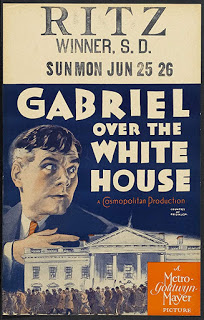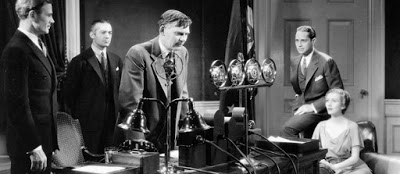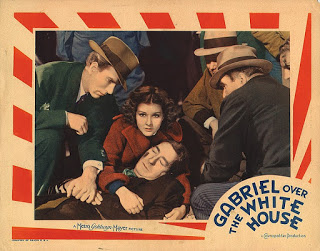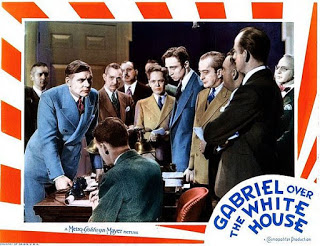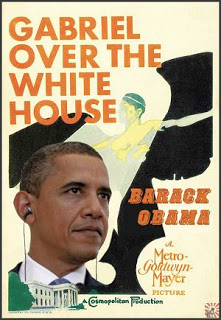Gabriel Over the White House
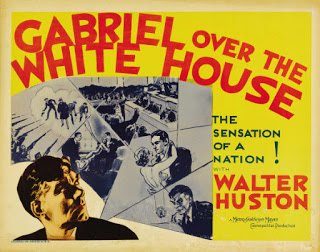
Director:
Gregory La Cava
Year: 1933
Rating: 8.0
This fascinating
film that is so prescient has generally fallen between the cracks of popular
and critical judgement. It is easy to see why. It is a political fantasy
film that pre-dates the Capra political social films (Mr. Smith Goes to Washington,
Mr. Deeds Goes to Town, Meet John Doe), but its political message is the
dark side of those films - generating conflicting feelings that are hard
to reconcile. Is it an anthem to Liberalism or Fascism? Does the end result
justify the means? I don't know but it left me enthralled, baffled but horrified
as well. At myself. What is doubly fascinating about the film is that it
is still relevant today - especially today.
